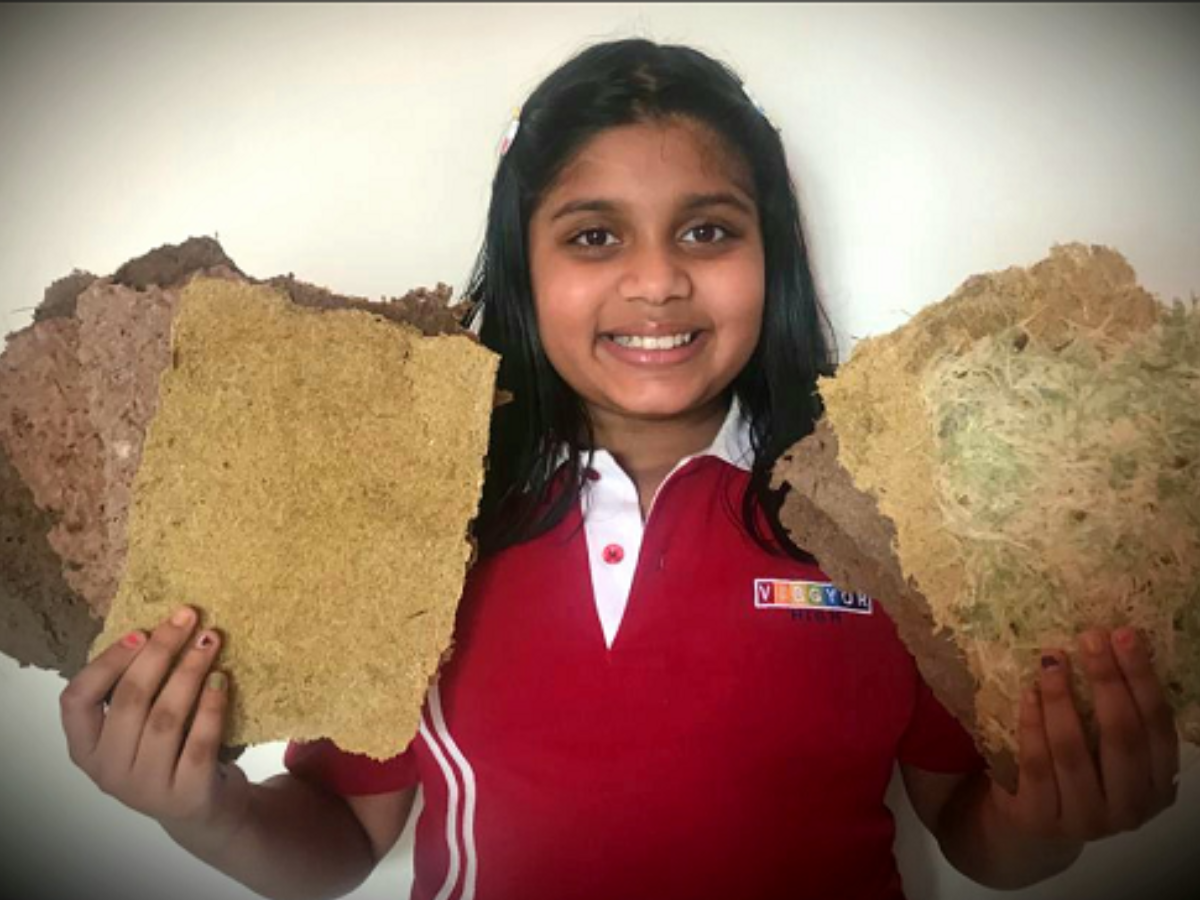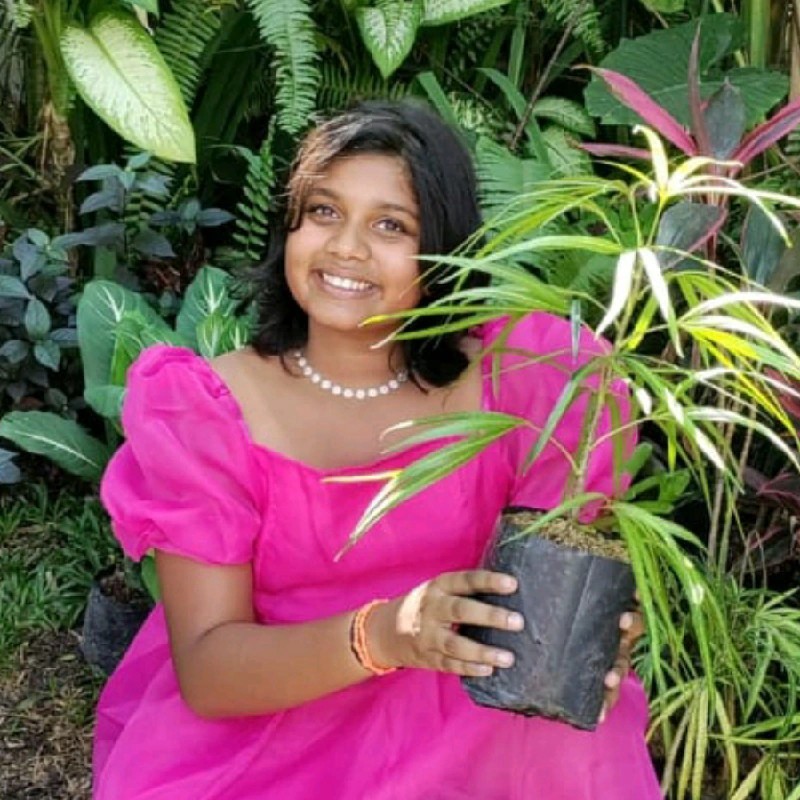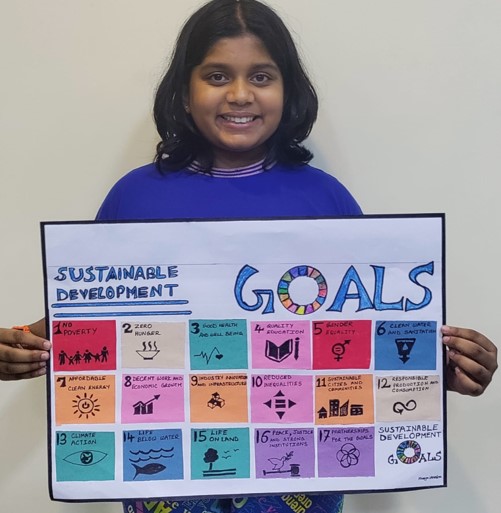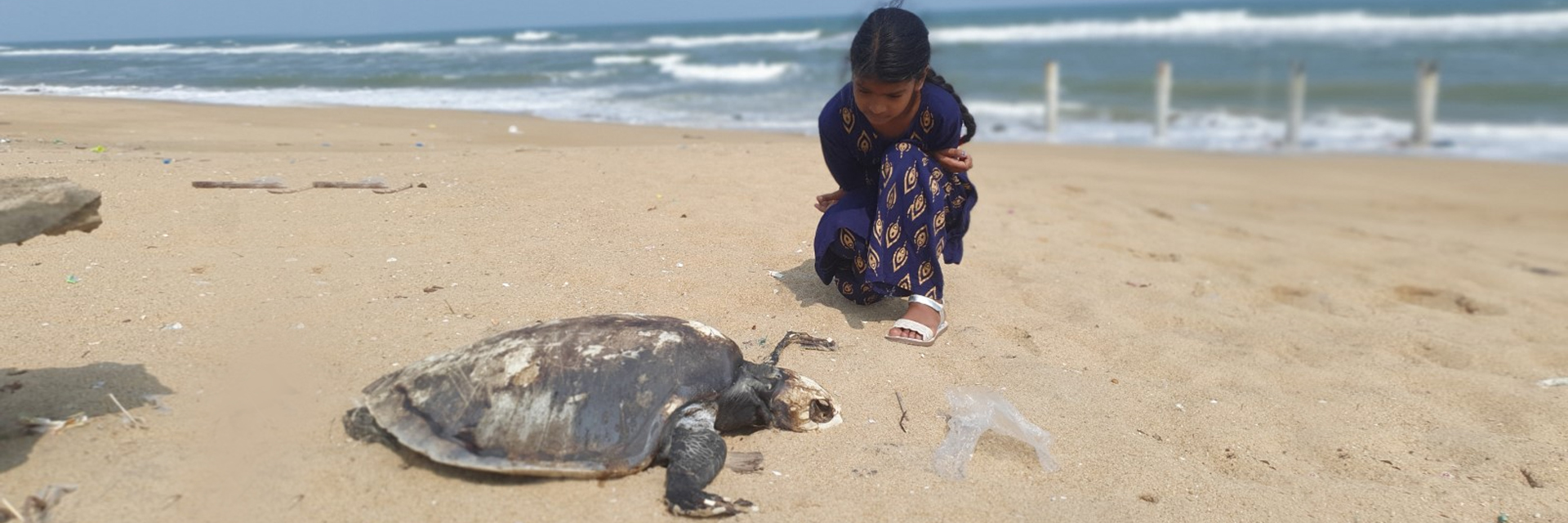(September 17, 2023) When most of the people were busy making Dalgona coffee in the lockdown, the then 10-year-old Bengaluru-resident Manya Harsha had turned her home into a mini laboratory where she spent hours looking for ways to turn vegetable waste in eco-friendly handmade paper. Passionate about environment, her green initiatives have been appreciated by the United Nations-Water. “I celebrate every day as Earth Day. I believe it’s our responsibility to look after our surroundings and nature,” she said in an interview.

Manya Harsha
Just when the world had come to a standstill, Manya, who has been a champion of environment, dived deeper to find a solution to saving trees. Around 15 billion trees are cut each year to make paper, and Manya was determined to find a way out. Despite several initial hiccups, she was able to devise a novel method through which she could produce 2-3 A4 size sheets by using 10 onion peels. The process was tiresome as her first attempt turned out to be a complete failure, but she persisted and kept improving the technique until she could make sheets in varied colours and patterns. “Recycled paper reduces energy and helps stop deforestation. With around 1.3 billion population, India generates an average of 1000 gms of kitchen waste per day, if everyone starts recycling vegetable peels into paper, each one can contribute to the lessening of Ecological crisis,” reads one of her Instagram posts.
Growing up amid the lush greenery of her grandmother’s home in Bengaluru, Manya felt closer to nature. But seeing waste pollution as a constant menace, she started raising awareness on environment preservation. “Born in Bengaluru, I see the beautiful Garden city slowly transformed by heaps of garbage dumped on the roadside and how the quantity of waste is increasing every passing day has been a matter of huge concern. This scenario always had made me think for a permanent solution as to how the flower and plant waste can be utilized in an eco-friendly manner,” she said.


As young as eight, she started raising awareness through blog and poetry. She understood the power of words, and ended up authoring five books on environment and nature. While she kept relentlessly championing for environment preservation, she took it a notch higher when she made handmade paper from vegetable peels. “Making one paper a day keeps deforestation at bay, in my opinion. It’s an easy sustainable option to wet waste management,” she said in an interview.
In 2020. she was awarded for her project SUNSHINE, an eco-friendly initiative, where she created DIY vegetable paper to promote environment awareness among kids. So far, she has produced over 300 sheets of colourful paper made from vegetable waste. “Instead of chopping trees for paper, let’s recycle the kitchen waste to eco-friendly vegetable paper. Let’s all together join hands to restore our earth,” Manya said, adding, “8 trees are sacrificed for 1000 pounds of paper! Now with around 8-10 onion peels, I can make 2-3 A4 size papers. A 1/2 kg of Peas husk can make 3 A4 size sheets! 2 -3 baby corn husk makes around 2 A4 size sheets! These colourful vegetable papers are just like any other handmade paper. You can write, draw, paint, fold and create art out of it.”


The Water Heroes awardee in 2020 by the ministry of JAL Shakthi, Manya is also the editor of her kid’s journal Sunshine Fortnightly. Moreover, she received the India Book of Records for being the youngest to write a book on nature. “I believe nothing in this world is a waste until you consider it one.”
- Follow Manya Harsha on LinkedIn




